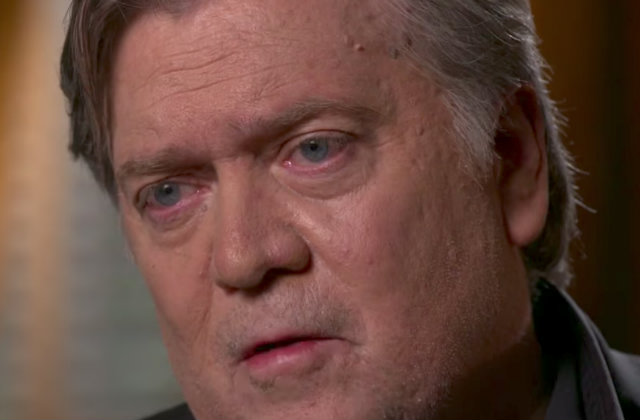 The Boy Who Cried Libel is at it again, and it feels like he’s operating straight out of a middle school cafeteria. Donald Trump’s lawyer, Charles Harder, has sent his latest nastygram to Steve Bannon, threatening the usual defamation lawsuit over Bannon’s contributions to the upcoming book, Fire and Fury: Inside the Trump White House. Harder, of Hulk Hogan v. Gawker fame, must be getting quite the chuckle out of billing his client yet again for cutting and pasting the same empty threats into his latest letter. Here’s what he said, this time:
The Boy Who Cried Libel is at it again, and it feels like he’s operating straight out of a middle school cafeteria. Donald Trump’s lawyer, Charles Harder, has sent his latest nastygram to Steve Bannon, threatening the usual defamation lawsuit over Bannon’s contributions to the upcoming book, Fire and Fury: Inside the Trump White House. Harder, of Hulk Hogan v. Gawker fame, must be getting quite the chuckle out of billing his client yet again for cutting and pasting the same empty threats into his latest letter. Here’s what he said, this time:
“This law firm represents President Donald J. Trump and Donald J. Trump for President, Inc. On behalf of our clients, legal notice was issued today to Stephen K. Bannon, that his actions of communicating with author Michael Wolff regarding an upcoming book give rise to numerous legal claims including defamation by libel and slander, and breach of his written confidentiality and non-disparagement agreement with our clients. Legal action is imminent.”
By “imminent,” I can only assume that Harder means, “never gonna happen,” since we’re all still waiting for the “imminent” lawsuits against The New York Times, CNN, the women who have accused him of sexually assaulting them, and the many others Trump has incessantly boasted about suing.
I know we’ve discussed the legal standard for a valid defamation lawsuit before, but since Trump still hasn’t gotten the message, here it is … one… more…. time! Defamation cases require plaintiffs to prove that the defendant made a statement of purported fact (not opinion), that the statement was factually untrue, and that the falsity caused the plaintiff to suffer quantifiable economic harm. For Trump to prove that Bannon defamed him, Trump would need to prove that Bannon’s contributions to author Michael Wolff’s book were not only untrue, but were presented as statements of fact. Even if Trump could clear those pretty monumental hurdles, his imagined defamation victory would be forestalled by an utter inability to prove financial damages. At this point, there’s not much Bannon could possibly have said that would cause Donald Trump to miss out on any income. Throw in the fact that Trump is a public figure, which adds an additional burden to prove that Bannon’s defamation was committed with “actual malice,” and Charles Harder’s letter isn’t worth the paper on which it’s printed.
Defamation is a clear loser for any Trump v. Bannon lawsuit; however, a more reasonable legal action might be one based in contract law. If, as Harder’s letter suggests, Bannon agreed not to disclose information and violated that agreement by contributing to Wolff’s book, litigation might not be as far-fetched. We haven’t seen the entirety of Bannon’s contract as presidential advisor, but we do know that during the campaign staff were all expected to sign contracts prohibiting them from making disparaging comments against anyone or anything Trump-related. Of course, courts aren’t usually all that psyched about enforcing contracts that muzzle individuals, especially when those individuals are informing the American people about the crazy going on inside the White House. Bottom line: the only clear winner at this point is Charles Harder, who has likely been able to send enormous legal bills to his client for recycling the same cease and desist letter for the hundredth time.
If we’re talking defamation, however, it’s possible that Steve Bannon should consult counsel. When your former employer tells the country that you’ve “not only lost your job, but also lost your mind,” the odds are pretty good on you winning a slander case. As I’ve explained before, in the context of Trump’s likely having defamed James Comey, it’s never a good idea for an employer to bad-mouth an ex.
This is an opinion piece. The views expressed in this article are those of just the author.